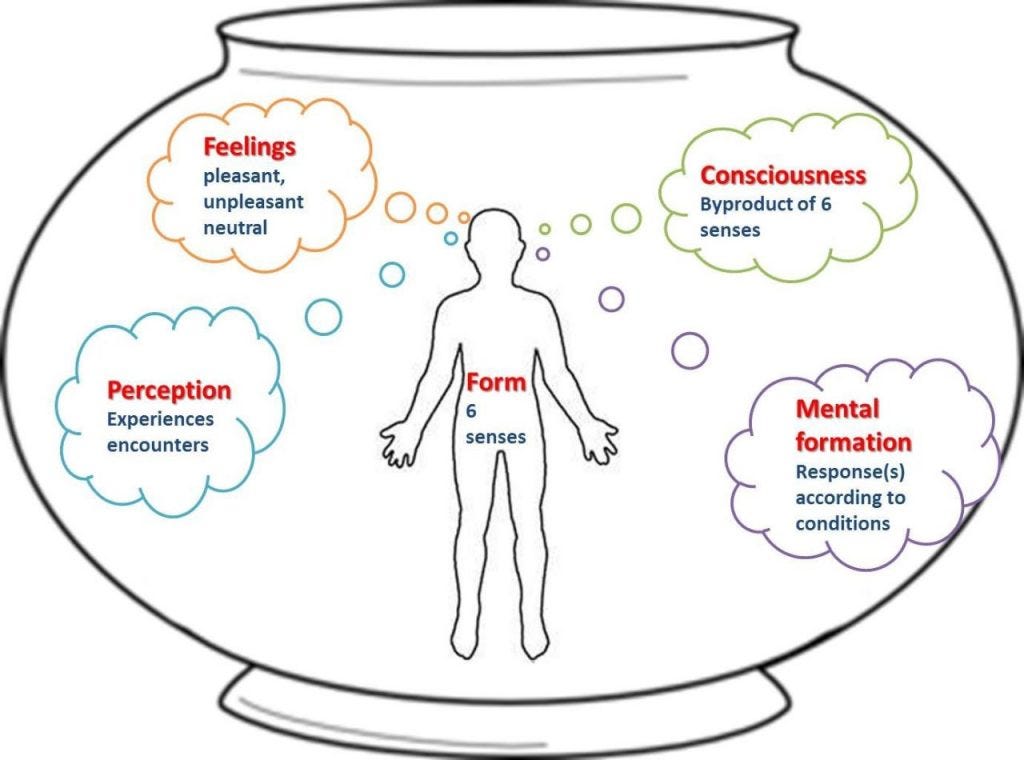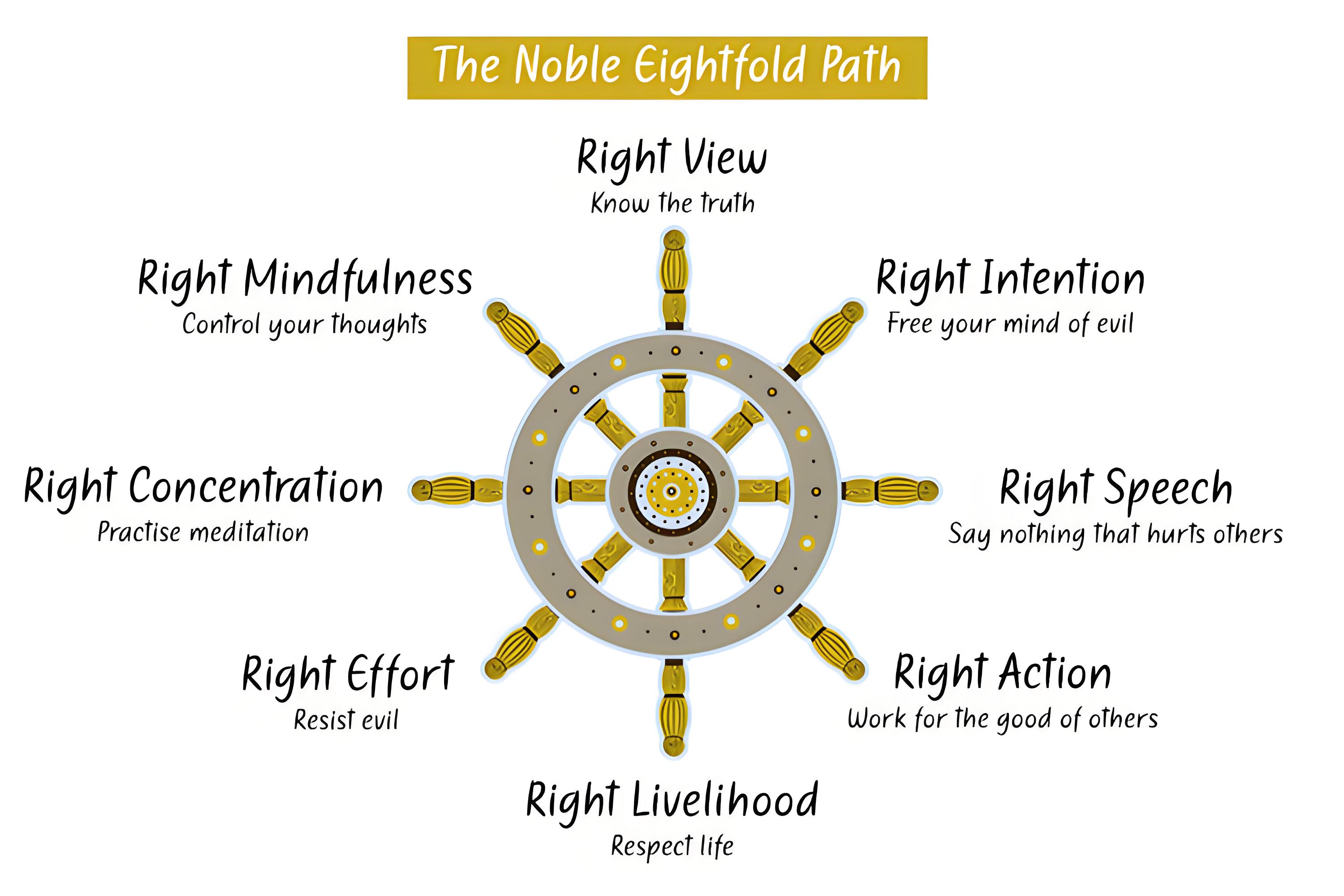Introduction
Is your mind sometimes like a chaotic storm, constantly bombarded with thoughts and emotions? It’s a universal experience, and for centuries, Buddhist psychology has offered a path to navigate this inner turbulence. This ancient system is not just about meditation and mindfulness. Indeed, it is a comprehensive framework for understanding the human mind, its complexities, and its potential for liberation. This article will decode the core principles of Buddhist psychology, showing you how they can be applied to foster greater well-being and lasting freedom from mental suffering.
What Exactly is Buddhist Psychology?
Buddhist psychology is an exploration of the mind that is deeply rooted in the teachings of the Buddha. Unlike Western psychology, which often focuses on behavior and external factors, Buddhist psychology delves into the inner workings of consciousness. Moreover, it examines how our thoughts, feelings, and perceptions shape our experience of reality. Instead of using the scientific method, it relies on introspective observation and personal experience. Therefore, it provides a unique lens for understanding ourselves and the world around us. The objective of buddhist psychology is not just to understand the mind, but to transform it.
The Core Principles of Buddhist Psychology
Several key concepts form the bedrock of Buddhist psychology. These aren’t just abstract ideas, but rather practical tools for understanding and working with your mind.
- Impermanence (Anicca): The understanding that everything is in a constant state of flux. This includes our thoughts, feelings, and the world around us. Indeed, recognizing impermanence helps us avoid clinging to pleasant experiences or resisting unpleasant ones. This understanding cultivates a more flexible and accepting attitude towards life.
- Suffering (Dukkha): Buddhist psychology acknowledges that suffering is an inherent part of the human experience. Furthermore, it identifies that suffering stems from our attachments, aversions, and ignorance. However, it doesn’t stop there, and it provides a path to transcend this suffering.
- Non-Self (Anatta): This concept challenges the notion of a permanent, unchanging self. Buddhist psychology proposes that what we perceive as our “self” is a collection of constantly changing mental and physical processes. Therefore, understanding this non-self helps to reduce self-centeredness.
The Five Aggregates (Skandhas)
Buddhist psychology explains that what we consider to be the “self” is actually made up of five aggregates:
- Form (Rupa): This encompasses the physical body and the material world.
- Feeling (Vedana): This refers to the sensations we experience, whether pleasant, unpleasant, or neutral.
- Perception (Samjna): This is how we recognize and interpret our sensory inputs.
- Mental Formations (Samskara): This includes our volitions, habits, and mental constructs.
- Consciousness (Vijnana): This is the awareness that is the basis of our experiences.
These aggregates are not separate entities. Instead, they are interdependent processes that continually interact to create the flow of our experience. Recognizing this interdependence can lessen our attachment to a fixed concept of the self.
The Importance of Mindfulness in Buddhist Psychology
Mindfulness is central to Buddhist psychology, acting as a bridge between theory and practice. Mindfulness is the practice of paying attention to the present moment without judgment. By observing our thoughts, feelings, and bodily sensations as they arise, we can understand their nature more clearly. Moreover, mindfulness enables us to see the transient nature of our experiences. It helps to break free from automatic reactions and cultivates a more balanced and compassionate approach to life.
Meditation: A Tool for Mental Transformation
Meditation is a key practice in Buddhist psychology that helps cultivate mindfulness. It is also an active form of mental training. Through meditation, we can strengthen our ability to focus, observe our thoughts without getting carried away, and develop a deeper sense of inner peace. There are various types of meditation techniques in Buddhist tradition, such as:
- Vipassana (Insight Meditation): This form of meditation aims to develop insight into the true nature of reality.
- Metta (Loving-Kindness Meditation): This practice cultivates feelings of love, compassion, and kindness towards ourselves and others.
- Samatha (Calm Abiding Meditation): This type of meditation cultivates focus and concentration.
Each of these practices, when done consistently, can greatly enhance our mental well-being.
Buddhist Psychology and Mental Health
In recent years, the principles and practices of Buddhist psychology have gained recognition for their effectiveness in addressing mental health challenges. Practices such as mindfulness meditation have been integrated into therapeutic approaches like Mindfulness-Based Cognitive Therapy (MBCT) and Mindfulness-Based Stress Reduction (MBSR). These therapies have shown promising results in reducing stress, anxiety, and depression. In addition, Buddhist psychology emphasizes that mental suffering is not a sign of personal weakness. Instead, it’s a natural part of the human condition. This perspective can be incredibly empowering, encouraging individuals to seek help without shame.
How Buddhist Psychology Differs From Western Psychology
While both fields seek to understand the human mind, they approach it from different angles. Western psychology often uses a scientific approach and focuses on external behaviors and diagnoses. On the other hand, Buddhist psychology uses introspection and aims to alleviate suffering through inner transformation. One of the key differences is the focus. Western psychology often focuses on behavior and theory, while Buddhist psychology focuses on the mind itself through meditative observation. Another key difference is the goals. Western psychology often focuses on adjusting to society and normality, whereas Buddhist psychology aims for liberation from suffering. These differences allow for an integrated approach to mental well-being.
The Eightfold Path and Well-being
The Eightfold Path, a central teaching in Buddhism, is not just a spiritual guide; it’s also a practical framework for cultivating a healthy mind and life. It includes:
- Right Understanding: Understanding the nature of reality.
- Right Thought: Cultivating thoughts of kindness and compassion.
- Right Speech: Speaking truthfully and kindly.
- Right Action: Acting ethically and responsibly.
- Right Livelihood: Engaging in work that is not harmful.
- Right Effort: Making conscious effort to improve oneself.
- Right Mindfulness: Being aware of the present moment.
- Right Concentration: Developing the ability to focus the mind.
By following these principles, individuals can enhance their mental well-being and live more meaningful lives.
Integrating Buddhist Psychology into Daily Life
You don’t have to be a monk to benefit from Buddhist psychology. In fact, you can integrate its principles into your everyday life.
- Start with Mindfulness: Take a few moments each day to simply observe your thoughts and feelings. Pay attention to your breath, or engage in a mindful walk.
- Practice Compassion: Extend compassion towards yourself and others. This can be done through loving-kindness meditation, or by simply being more understanding of yourself and others.
- Embrace Impermanence: Accept that everything is always changing. This can help to reduce anxiety and make you more accepting of life’s ups and downs.
- Cultivate Ethical Living: Consciously act with kindness, honesty, and responsibility in all that you do.
These simple yet profound practices can gradually transform your mind and enhance your well-being.
The Benefits of Exploring Buddhist Psychology
Exploring Buddhist psychology offers a wealth of benefits that can enrich your life. These benefits include:
- Reduced Stress and Anxiety: Mindfulness practices can help you to manage stress and reduce anxiety by observing your thoughts without being overwhelmed by them.
- Increased Emotional Regulation: Understanding the nature of emotions can help you manage your emotional responses more effectively.
- Enhanced Self-Awareness: The practice of introspection can lead to a deeper understanding of your thoughts, feelings, and motivations.
- Greater Compassion: Cultivating compassion can help you to connect with others and reduce feelings of isolation.
- A More Meaningful Life: By understanding and applying the principles of Buddhist psychology, you can find deeper meaning in your life and reduce suffering.
Novel Insight
While many articles touch on the benefits of Buddhist psychology, a novel insight is its practical application as a tool for cognitive reframing. By understanding the impermanent and interconnected nature of thoughts and emotions, individuals gain the ability to consciously detach from negative patterns. Instead of being controlled by their emotions, they can observe them with equanimity. This offers a fresh perspective on using buddhist principles as a tangible way to transform mental processes. This approach moves beyond abstract spiritual concepts and is rooted in actionable understanding and mindful practice.
Conclusion
Buddhist psychology provides a profound framework for understanding the human mind and overcoming suffering. It emphasizes the importance of mindfulness, compassion, and wisdom to cultivate inner peace and freedom. This is a system that is not just about spiritual enlightenment, but also about living a more balanced and meaningful life. By integrating these principles into your daily life, you can unlock your own potential for transformation and find lasting happiness. Therefore, take the time to explore these ideas, experiment with the practices, and discover the power of Buddhist psychology for yourself.
If you found this article insightful, please share it with others who might benefit. Leave a comment below and tell us what resonated with you. You can also explore other articles on our website to learn more about practices that enhance mental well-being.



